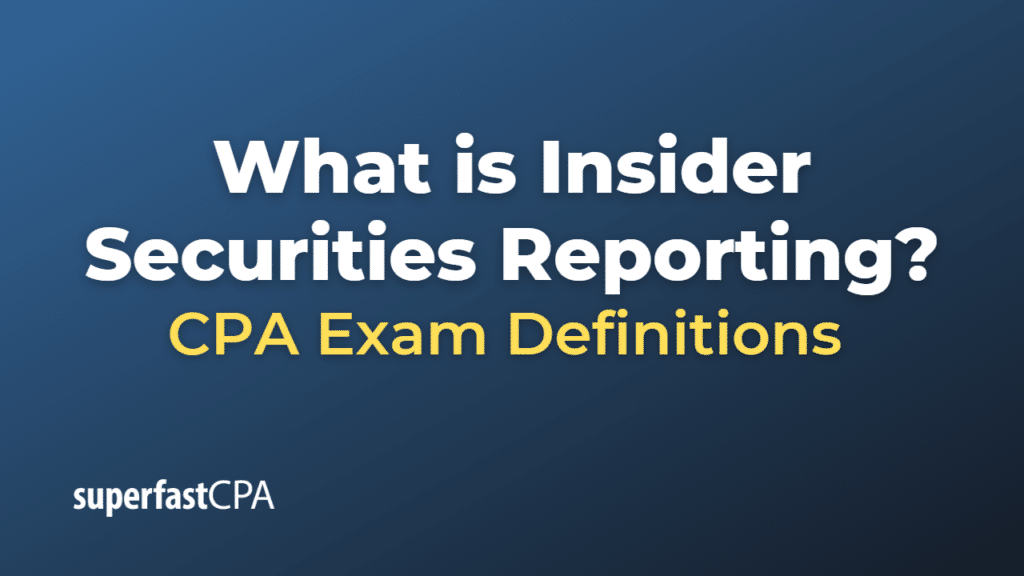Insider Securities Reporting
Insider securities reporting is a legal requirement for certain individuals associated with a publicly-traded company (known as insiders) to report their trades of the company’s securities (such as stocks or bonds) to the relevant securities regulatory authority. The insiders typically include the company’s directors, senior officers, and any shareholders who own more than a certain percentage of the company’s shares (commonly 10%).
The purpose of insider securities reporting is to ensure transparency and fairness in the market. By making insider transactions public, it helps to prevent illegal activities such as insider trading, where insiders might use non-public, material information about the company to gain an unfair advantage in the market.
In the United States, for example, insiders must report their trades to the Securities and Exchange Commission (SEC), usually within two business days of the transaction. These reports are then made publicly available. Similar regulations exist in many other jurisdictions around the world.
Failure to accurately report these transactions can result in significant penalties, including fines and potential jail time, depending on the jurisdiction and the severity of the violation.
Example of Insider Securities Reporting
Let’s consider a hypothetical situation involving a U.S.-based technology company, “InnovateTech”.
John, the CEO of InnovateTech, decides to purchase 1,000 shares of InnovateTech on June 1st, 2023. According to U.S. securities law, specifically the Section 16 of the Securities Exchange Act of 1934, John is considered an insider because he is a director and officer of the company.
John’s purchase of company shares constitutes a change in his ownership of InnovateTech stock. As a result, he must report this transaction to the Securities and Exchange Commission (SEC) using a Form 4. This form includes details such as the date of the transaction, the number of shares bought or sold, and the price per share.
John must file the Form 4 within two business days following the transaction. Once filed, the SEC makes this information publicly available to ensure transparency. This helps to prevent illegal insider trading by ensuring all investors have access to the same information regarding transactions by insiders.
If John fails to file the Form 4 within the required time, he could face penalties from the SEC, including monetary fines. In severe cases, repeated or egregious failures to report insider transactions can also result in jail time.
Note that this example is specific to the U.S. and the exact requirements can vary in other countries, although the basic principles of reporting insider transactions are similar in many jurisdictions.













